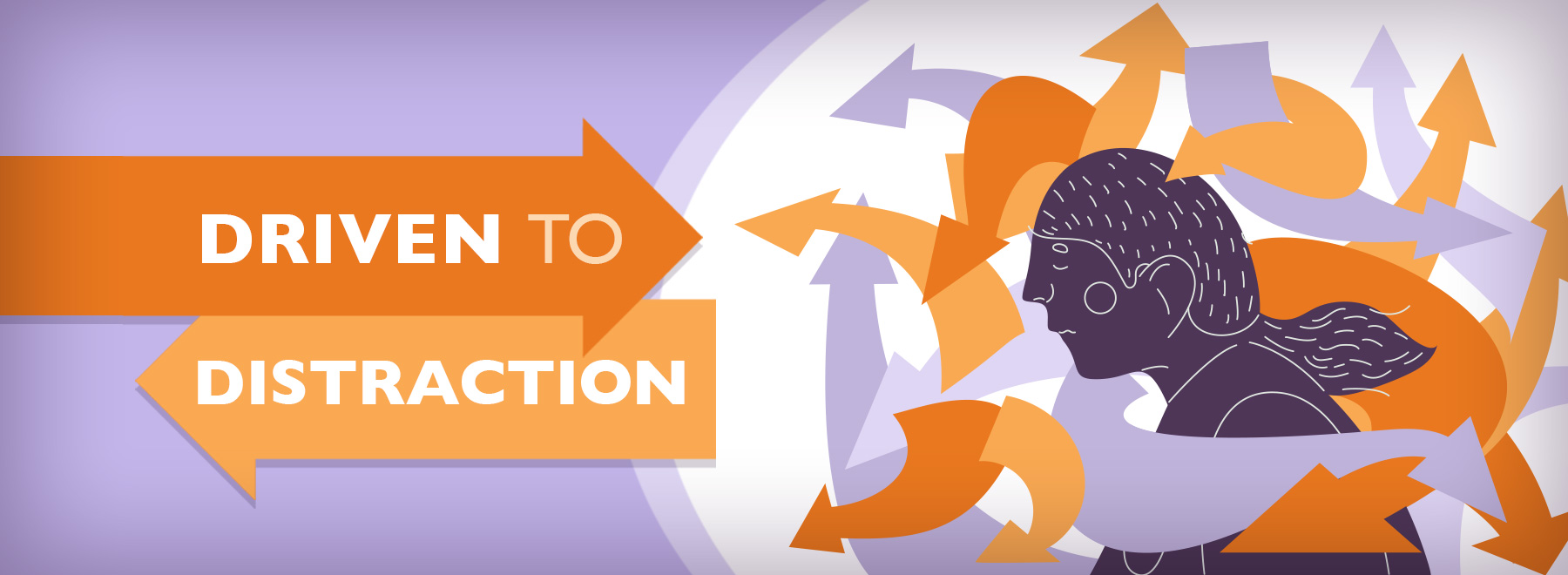Adult ADHD: Five Tips on diagnosis and treatment
Impulsive behavior and difficulty focusing on studies or work aren’t necessarily the result of bad decisions or a poor work ethic. Adult ADHD could be the reason.
Symptoms of Attention Deficit Hyperactivity Disorder, or ADHD, usually shows up in childhood, but sometimes this condition isn’t diagnosed until adulthood, experts at the University of Mississippi Medical Center say.

“We certainly have seen adult ADHD in our clinical programs on a fairly frequent basis,” said Dr. Scott Rodgers, chair of UMMC’s Department of Psychiatry and Human Behavior. “There is a growing recognition that ADHD can affect adults as well as children and adolescents. However, the symptoms and how they manifest can be slightly different.”
Children and teens with ADHD often experience hyperactivity, impulsivity and inattention. Adults with ADHD are less likely to have hyperactivity but have issues with inattention and impulse control, Rodgers said.
“These symptoms in adults have consequences in multiple domains of a person’s life, such as at school and work and within relationships,” he said. “They struggle to stay focused, make careful and thoughtful decisions, and remain levelheaded and intentional over the course of a typical day. They can be more mistake-prone, more accident-prone and more reckless in their behavior.”
If you think you or someone you know may have ADHD, find out more information from these five frequently asked questions about the disorder and treatment.
— — —
Q. Are adult ADHD and childhood ADHD related?
A. Yes, adult ADHD stems from childhood ADHD, Rodgers said. “It doesn’t suddenly start later in a person’s life. If someone is suffering as an adult with ADHD symptoms that arose only recently and never affected them early in life, odds are good that something else is causing the symptoms, and not ADHD.”
— — —
Q. What are other conditions that could have symptoms similar to adult ADHD?
A. Other conditions including depression, anxiety, bipolar disorder and substance abuse disorders can mimic the symptoms of adult ADHD, said Dr. Osman Athar, assistant professor of psychiatry. “It’s important to see a psychiatrist to get a good grasp on the symptoms you are facing,” he said.
— — —
Q. What are signs of adult ADHD that shouldn’t be ignored?
A. Relationship problems and failure to meet obligations are signs that should prompt a visit to a specialist, said Dr. Jahanzeb “Jahan” Khan, assistant professor in UMMC’s Division of Child and Adolescent Psychiatry and Adult Psychiatry Residency. Minor mistakes that could be dangerous, such as traffic violations, are another sign, he said.
Depression related to poor follow-through with tasks and substance abuse to help cope with symptoms are two other danger signs, Athar said.
— — —
Q. Can distractions with electronics contribute to adult ADHD?
A. Adult ADHD is a psychiatric condition and isn’t affected by cell phones, video games or other electronics. “Interestingly, people with ADHD often do quite well with fun activities like video games,” Rodgers said. “They suffer and perform poorly on tasks that are necessary and required but can be boring or lacking in excitement, such as tasks at work or school. The acid test for ADHD in children, adolescents, and adults is how one performs during a mundane/low-stimulating task rather than how one performs during something that is fun and exciting.”
— — —
Q. How is adult ADHD treated?
A. “The mainstay of treatment for ADHD involves medications, primarily the same stimulant medications that are used in children and adolescents,” Rodgers said. “These medications are remarkably effective, and people notice improvements in their symptoms almost immediately. Psychotherapy for ADHD, while not part of the mainstay of treatment, can be helpful to patients, particularly those whose self-esteem has been adversely affected. There may also be some utility for cognitive-behavioral approaches to help one manage the associated impulsivity and inattention symptoms. Treatment for adult ADHD is straightforward, highly effective, and, most importantly, life changing. It’s important not to ignore the condition and struggle unnecessarily through life with something that is so treatable and manageable.”
Khan notes that ADHD is chronic and life-long. “Treatment can really improve and enhance life and may be the difference between success and failure."
The above article appears in CONSULT, UMMC’s monthly e-newsletter sharing news about cutting-edge clinical and health science education advances and innovative biomedical research at the Medical Center and giving you tips and suggestions on how you and the people you love can live a healthier life. Click here and enter your email address to receive CONSULT free of charge. You may cancel at any time.



